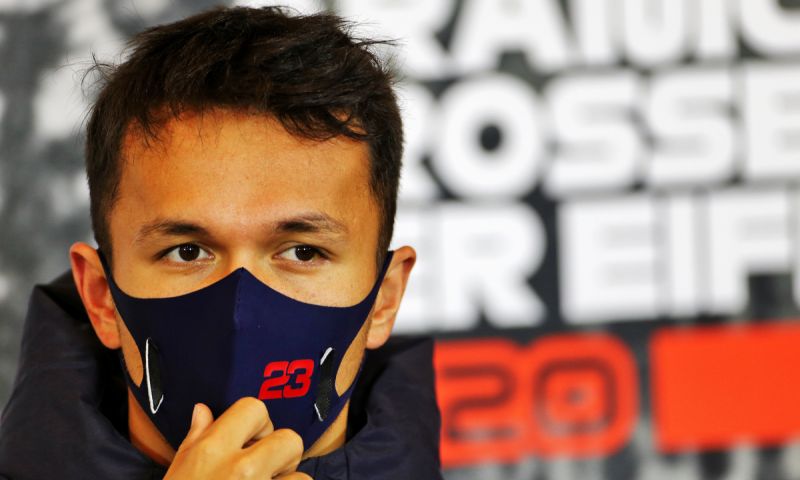F1 News

Albon found it no problem: 'Recent F2 and F3 drivers are used to it'
- GPblog.com
Due to the cancellation of all Friday running at the Eifel Grand Prix, a discussion about two-day race weekends got going. Alexander Albon is in favour of the idea in certain situations.
The first two free practice sessions were both cancelled on Friday. The weather was so bad that the medical helicopters could not fly.
According to Alexander Albon, it took some getting used to, but not so strange for new F1 drivers. "I wasn’t as happy as I would’ve been if I had done FP1 and FP2. It’s not too bad especially for the recent F2 or F3 drivers because this is what we’re used to. It’s not anything too different it just means you’ve got to be on it a little bit quicker in the session. It felt good and I quite like it, I’m looking forward to Imola," the driver said in a press release organised by Red Bull Racing.
"If we do double-headers 100% a two day weekend is the way forward. There’s no real reason to do a Friday on the second part of the double-header. I mean, yes and no. I’m thinking the guys need the TV money from what I understand," continues the British Thai.
Penalty points system changed?
The two-day race weekend may not be the only change that can take place soon in Formula 1. In the drivers meeting there was a lot of talk about the penalty points for drivers. "I don’t know how you found out about the drivers meeting?" Albon asks in amazement. "I think there’s a difference between a dangerous move and something not. Like Lewis’ thing wasn’t dangerous so it’s understandable. Daniil Kvyat was talking about the blue flag stuff which is not necessarily dangerous so it shouldn’t be considered as penalty points," explains the driver.
"Just things like that make sense. We have a condensed calendar this year so the penalty points are more punishing. From my understanding the FIA are reviewing. The dangerous moves we should give penalty points, but miscommunications when nobody is in danger I think could be done differently," Albon concludes.

